MVTec
HALCON Progress 25.11
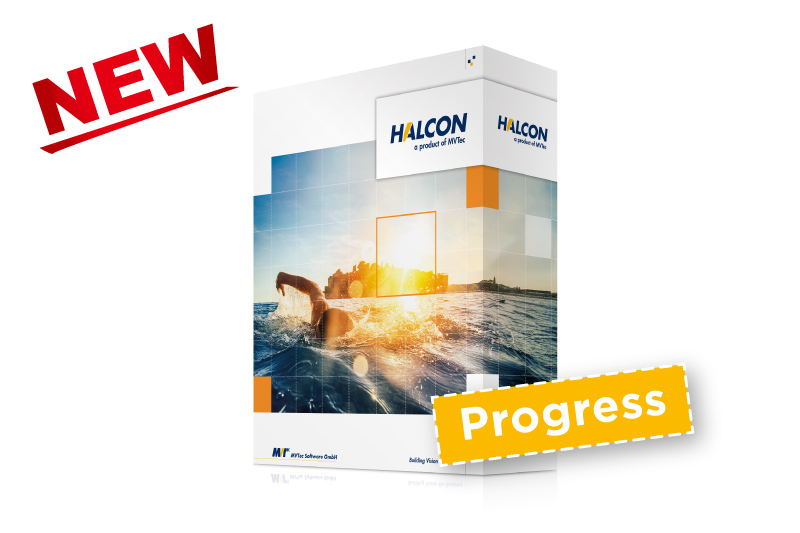
HALCON Progress is the fast track to the latest features. With new releases approximately every six months, it gives you access to the newest features quicker and more frequently than ever before. HALCON Progress development licenses are exclusively available via an annual subscription. A valid HALCON Progress development license grants access to all Progress releases within the subscription period. For more information about our licensing models, please visit.
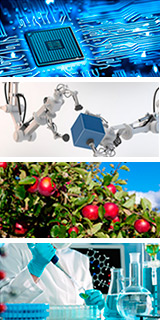
Highlights
- HALCON is your solution for the full range of applications in the field of machine vision
- Enabler of the Industrial Internet of Things (aka Industry 4.0)
- Large imaging library of more than 2,100 operators
- Integrated development environment (IDE) for machine vision: HDevelop
- Huge range of features including deep learning
- Easy programming in C, C++, C#, Python, and Visual Basic .NET
- Available for a multitude of platforms
- Support of multi-core and multiprocessor computers
- High performance through utilization of state-of-the-art instruction sets and GPU Acceleration
- Support of hundreds of industrial cameras, frame grabbers, and all common vision standards
Features
- Revolutionary software for 3D machine vision
- Matching to find even rotated or partly occluded objects
- Blob analysis with more than 50 shape and gray value features
- High-accuracy measuring
- Huge range of latest deep learning technologies
- Optical character recognition and verification (OCR/OCV)
- Arbitrarily shaped regions of interest (ROIs) for significant flexibility and speed
- Detection of lines, circles, and ellipses with an accuracy of up to 1/50 pixel
- Extremely fast morphology
- Color image processing and hyperspectral imaging
- Processing of extremely large images (more than 32k x 32k)
- Image sequence processing (e.g., for surveillance tasks)
- Accurate 3D camera calibration
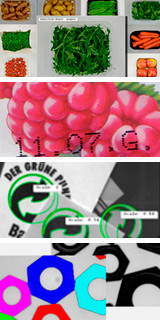
Newest features of HALCON 25.11
MVTec HALCON 25.11 has been launched in November 2025. This version again brings some improvements as well as new features, such as Continual Learning – Classification, a new technology that makes training and maintaining classification models faster and more flexible. The new HALCON release also includes Score Visualization for Shape Matching, Optimized Deep OCR models for faster, resource-efficient OCR and further improvements.
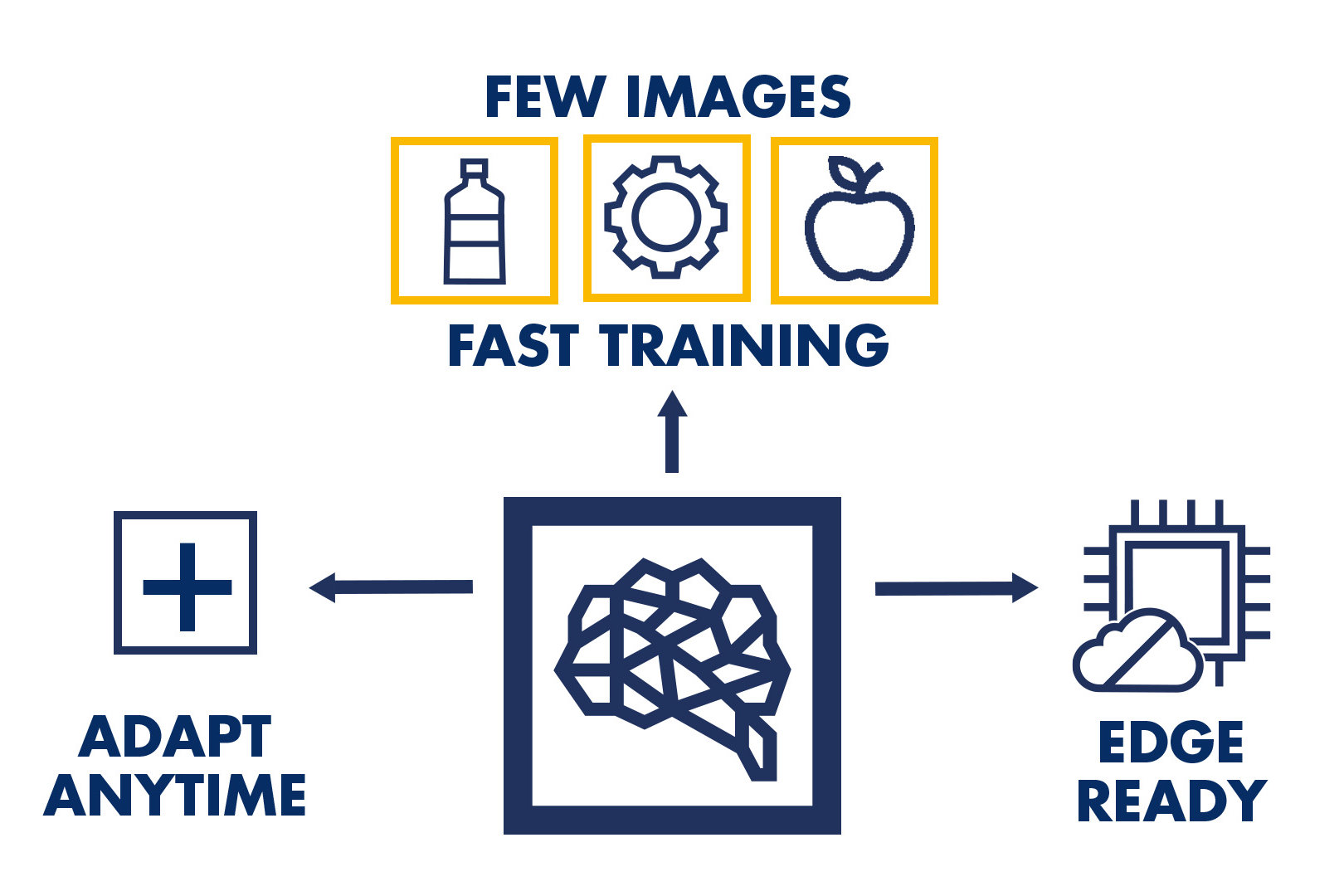
Continual Learning – Classification
HALCON 25.11 introduces Continual Learning – Classification, a new technology that makes training and maintaining classification models faster and more flexible. Users can create models with only few images per class and adapt them at any time – for example, to refine existing classes or add new ones.
Score Visualization for Shape Matching
With Score Visualization for Shape Matching in HALCON 25.11, users gain increased transparency when setting up shape matching applications. Instead of only returning an overall score, the feature provides a breakdown of how different model parts contribute to the final result. By configuring color-coded bins, users can immediately see which areas match well and which perform poorly, for example due to shadows or unwanted textures. This visual feedback makes it much easier to refine models, remove problematic parts, and optimize applications – a major usability advantage especially for non-expert users.
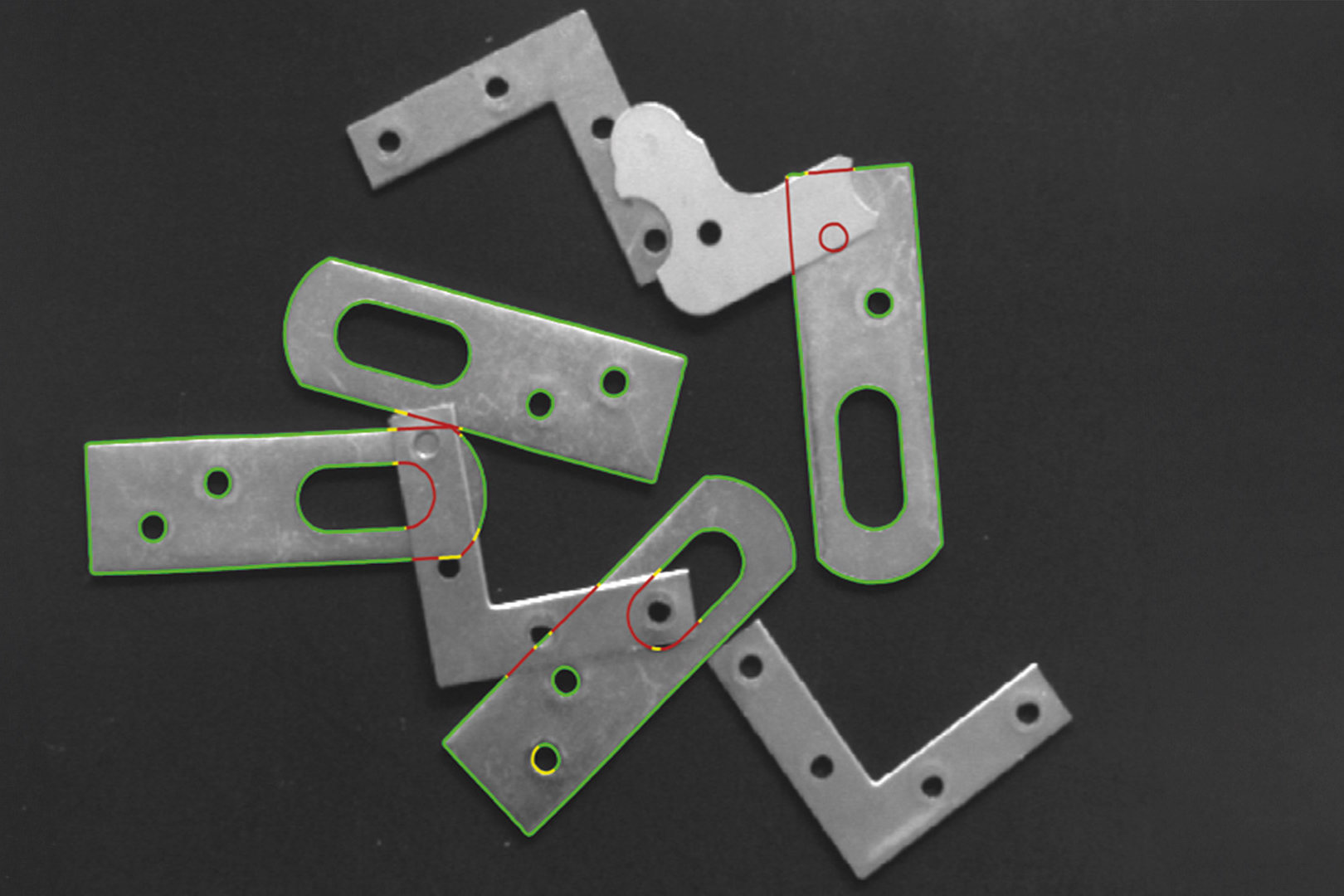
The feature can also support advanced scenarios in robotics, helping determine which object in a stack is least covered and should be picked first.
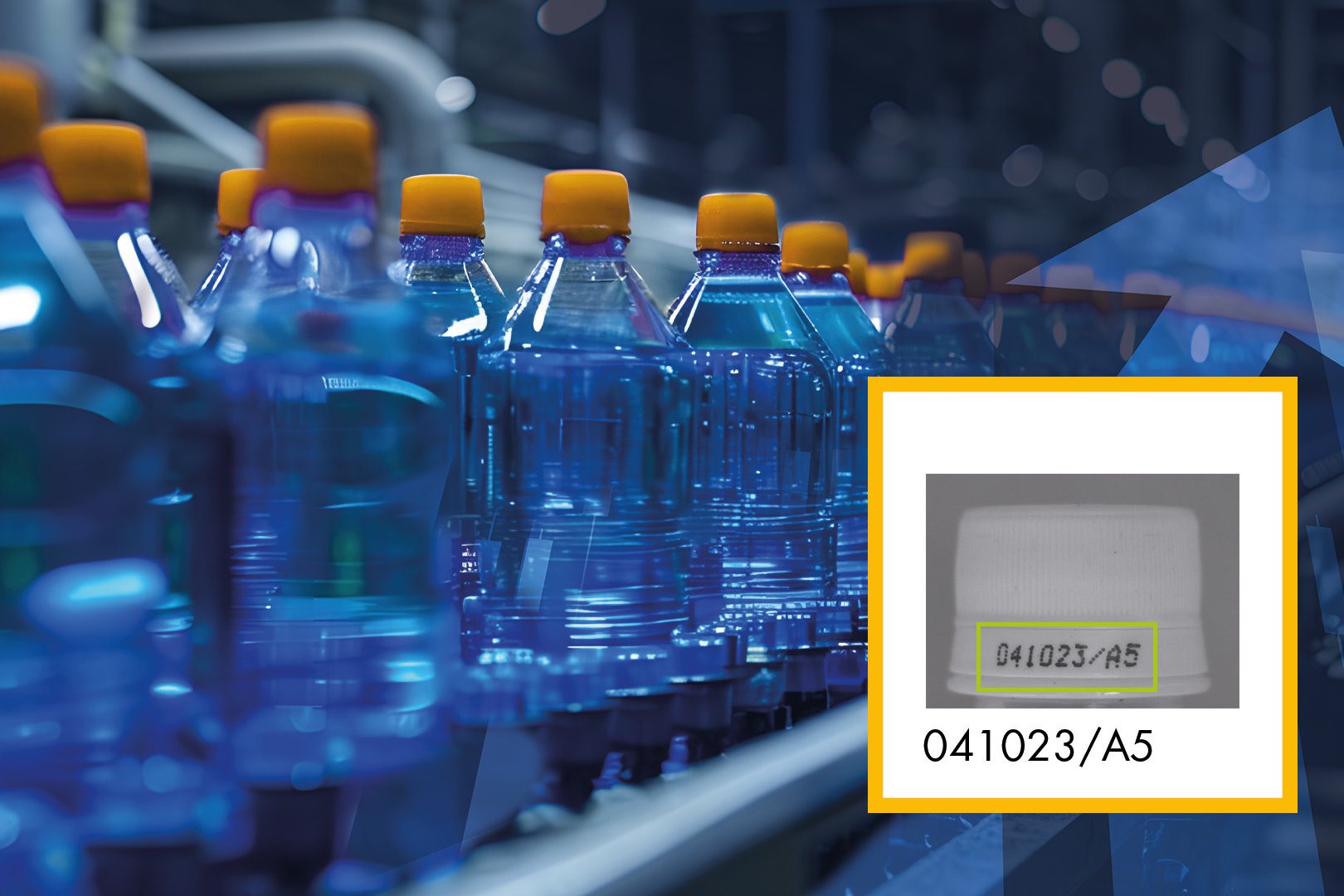
Optimized Deep OCR models for faster, resource-efficient OCR
With new Deep OCR recognition models in HALCON 25.11, text reading becomes faster and more resource-efficient without compromising accuracy. The models deliver up to 50× faster inference on embedded devices.
All models are pretrained by MVTec on industrial image data, and include the proven alignment preprocessing, which improves recognition when text varies in position or orientation. Thanks to their optimized architecture, they enable real-time OCR applications on low-power devices while maintaining high accuracy. This makes the models ideal for demanding inline applications such as serial number inspection, label verification, or lot tracking OCR tasks, across industries from logistics and packaging to pharmaceuticals, consumer goods, and medical technology.
MobileNetV4 classification models
With HALCON 25.11, MVTec adds support for the MobileNetV4 series, an efficient new generation of deep learning models optimized for resource-constrained systems and edge devices. These models support both classification and object detection tasks and deliver high accuracy while maintaining low computational requirements. Users benefit from fast inference times, lower system costs, and straightforward integration into existing HALCON projects. All models are pretrained by MVTec, ensuring strong performance for various downstream tasks such as quality inspection, product classification, presence detection, and surface defect analysis. Typical industries include automation, electronics, packaging, food, and medical technology.
Various code reading and print quality inspection improvements
With HALCON 25.11, code reading and print quality inspection (PQI) become even more robust and versatile. QR code detection has been improved for challenging cases such as curved or deformed surfaces. A more powerful candidate search significantly raises the detection rate, while runtime has been reduced for standard scenarios – enabling reliable reading in industries like logistics, packaging, food production, and bottle labeling. The bar code reader has also been enhanced for Code 128 and GS1-128, making it more tolerant to irregular bar widths caused by printing variations or local distortions. This increases decoding reliability across diverse industrial applications. In addition, HALCON now supports the latest print quality inspection standards ISO/IEC 15415:2024 and ISO/IEC 29158:2025. This ensures code quality can be verified according to the most up-to-date requirements in sectors such as pharmaceuticals, food, and logistics. Together, these enhancements provide compliance, long-term process stability, and higher robustness across a wide range of industrial code reading applications.
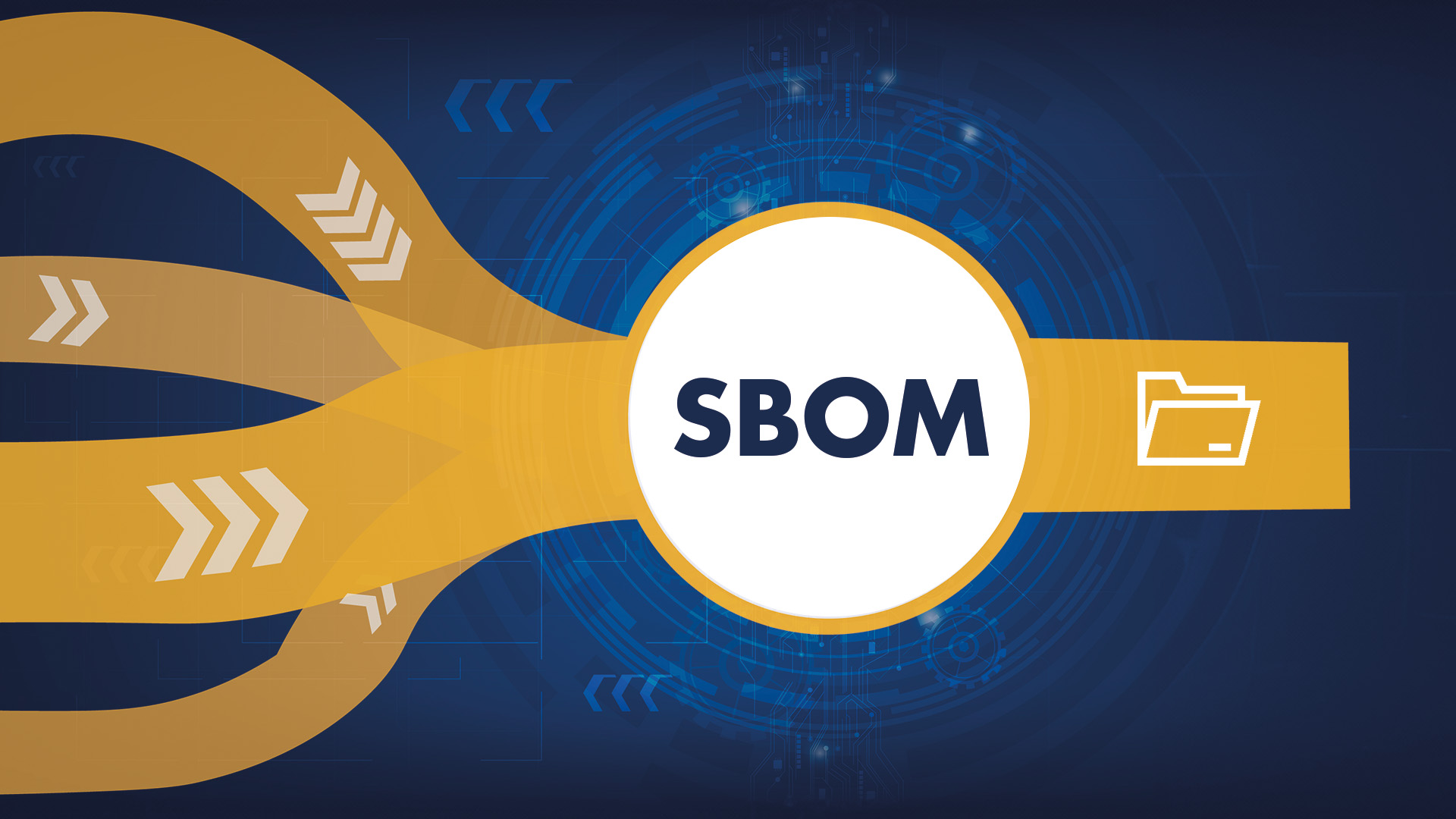
Built-in SBOMs for easier compliance
With HALCON 25.11, MVTec provides Software Bills of Materials (SBOMs), giving users transparent insight into the software components included in the product. SBOMs are becoming a key requirement under new regulations such as the EU Cyber Resilience Act and are increasingly demanded in process- and safety-critical industries.By providing SBOMs directly with HALCON, MVTec simplifies compliance and reduces workload for customers.
Delivered as machine-readable SPDX JSON files, SBOMs make it easier to perform vulnerability and license analyses, fulfill regulatory obligations, and react quickly to newly discovered risks. The result is less integration effort, lower long-term costs, and greater confidence in meeting both regulatory and customer requirements.
Latest preview version of HDevelopEVO
Syntax highlighting for HALCON Script files in HDevelopEVO 25.11
HDevelopEVO 25.11 introduces redesigned syntax highlighting for HALCON Script files, making code easier to read, navigate, and maintain. Instead of uniform coloring, operators, variables, and comments are now displayed in distinct colors, giving scripts a clear visual structure. This improves orientation in the code, reduces errors, and speeds up debugging and refactoring – resulting in a more efficient workflow and a smoother development experience.。
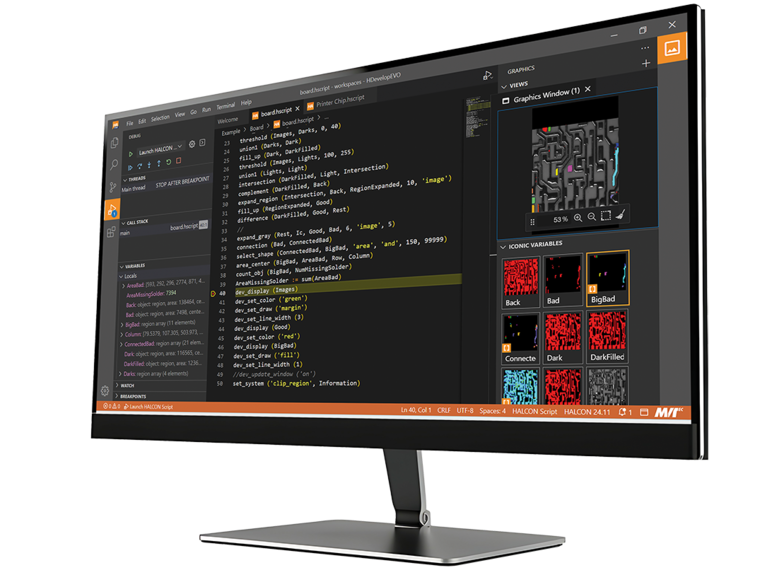
HALCON Script Engine and C++ API in HDevelopEV
With HDevelopEVO 25.11, MVTec introduces the first preview of the HALCON Script Engine, the successor to the HDevEngine. It provides a runtime environment for executing HALCON Script files created in HDevelopEVO. The HALCON Script Engine can initially be integrated into applications via a C++ API. Further interfaces such as .NET and Python are planned for future releases. This bridges the gap between prototyping in HDevelopEVO and productive use in custom solutions. As a preview version, the HALCON Script Engine already enables embedding HALCON Scripts into applications. While not all language features are supported yet, these will follow in future releases. In the meantime, users can try it out and gain early experience with the new workflow.
Additional features
Also included in this release are several improvements that make working with HDevelopEVO more efficient. A new script converter simplifies the migration of existing HDevelop procedures and example programs into HDevelopEVO, supporting stepwise conversion and reuse of established code. Usability has been enhanced with interactive tools: a real-time histogram integrated into the threshold operator for intuitive parameter adjustment, and a live display of grayscale values on mouse hover for instant pixel-level analysis. Together, these features simplify migration, speed up troubleshooting, and streamline everyday image processing workflows.
Major features of HALCON 25.05
HALCON 25.05 will be released on May 27, 2025. This new version includes numerous improvements, as well as a new technology that combines deep learning algorithms with classic methods.:
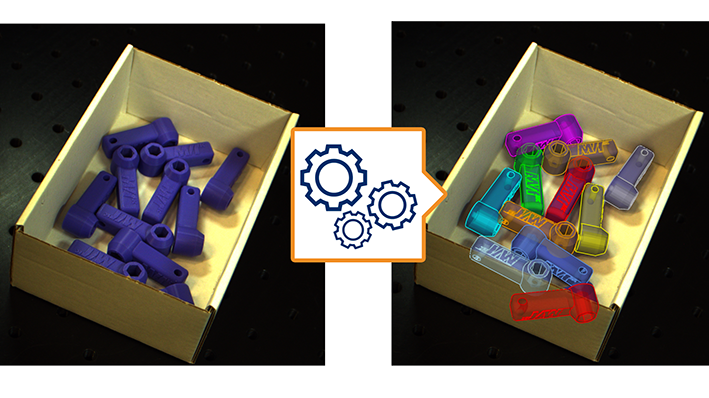
Train your own Deep 3D Matching models
Deep 3D Matching is a new deep-learning-based technology for fast and robust 3D object detection and pose estimation using 2D images. It requires minimal parametrization and delivers high performance, making it ideal for applications such as bin picking and robotic handling – even in challenging conditions.
With HALCON 25.05, users can now train their Deep 3D Matching models independently, without requiring MVTec support. A new renderer makes it possible to generate training data from the CAD model of the relevant object and thus also enables training exclusively with synthetically generated, labeled data. This allows for a flexible setup and can cover various object properties like reflections and transparency. With the new training functionality, customers can now create 3D matching applications tailored to their specific needs and environment. If desired, model training can still be commissioned as a paid service through MVTec.
More robust Deep OCR with alignment-based text correction
In some applications, running Deep OCR’s detection model, which localizes word regions in the image, may not be feasible due to tight cycle time constraints. In such cases, users define text regions manually or through rule-based image processing, which can lead to inaccurate recognition due to suboptimal crops. With HALCON 25.05, Deep OCR thus includes an alignment step before recognition.
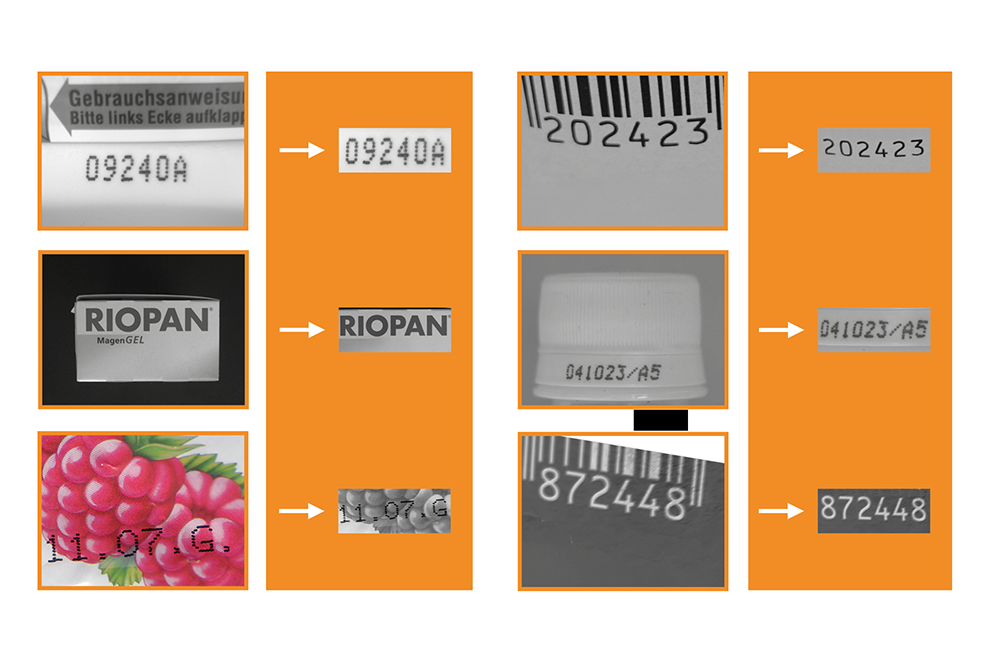
This step refines rough word crops, significantly improving reading accuracy even when text regions are placed imprecisely. As a result, users can bypass the detection model while maintaining reliable OCR results – leading to a considerable reduction in processing time. This makes text recognition workflows not only more flexible but also much faster, as precise ROI placement is no longer required. The alignment step itself is highly efficient and adds only minimal processing overhead.
Core feature improvements
HALCON 25.05 also includes various improvements to important core technologies like the code reader or Generic Shape Matching:
Enhanced code reader with QR code rectification
With version 25.05, HALCON improves its code reader with QR code rectification, enabling reliable reading even on curved or deformed surfaces. This expands application possibilities in industries such as logistics, packaging, food production, and bottle labeling, where QR codes often appear on non-flat materials.
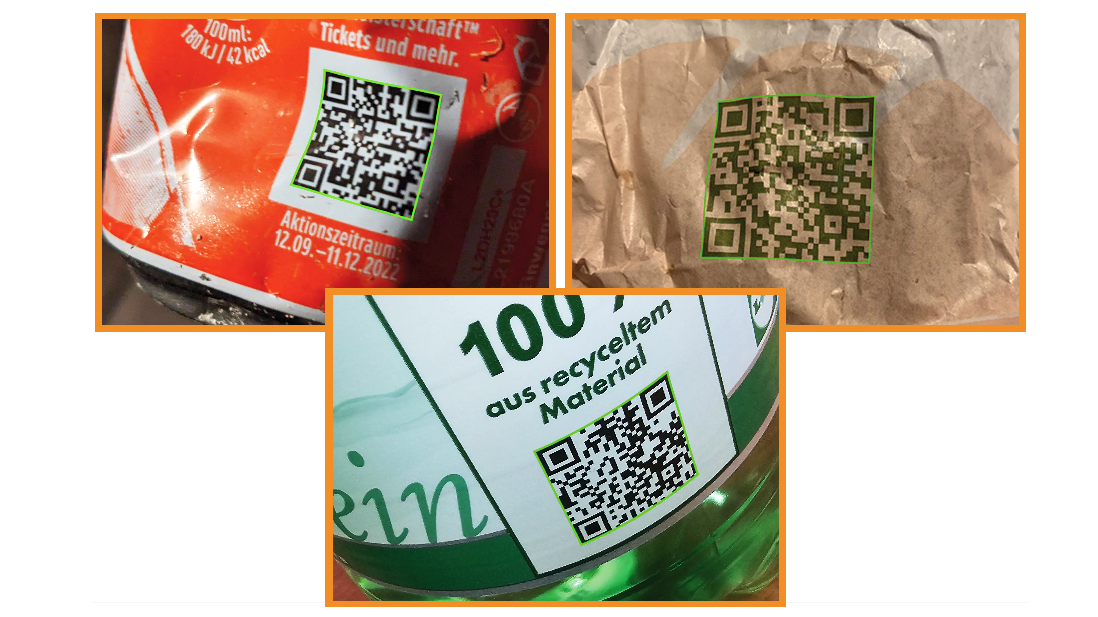
The rectification process ensures higher readability without requiring perfectly flat surfaces. It is optional and can be enabled as needed. While processing time is slightly longer than standard QR code reading, the improved robustness makes it a valuable addition for demanding applications.
Interruptible training for Generic Shape Matching
The 25.05 release of HALCON adds the possibility to interrupt training for Generic Shape Matching, giving users greater flexibility and control over the process. Training can now be stopped manually or limited with a timeout (e.g., after 1 second), ensuring efficient operation without unnecessary waiting times. Previously, once training started, it had to run to completion, which could lead to delays – especially in embedded applications with limited resources. Now, users can seamlessly integrate training into their workflows, preventing long processing times and improving responsiveness.
New image acquisition interface for modern camera technologies
HALCON 25.05 introduces a new set of image acquisition operators designed for seamless integration with state-of-the-art camera technology. While MVTec has always focused on efficient camera connectivity, modern standards like GigE Vision and USB3 Vision bring both new opportunities and new challenges. The new interface simplifies camera handling while providing full control over advanced configurations. These new operators provide a clearer, more intuitive interface, optimized for standard use cases while maintaining full control over the GenICam GenTL architecture. Additionally, they support multiple streams if provided by GenICam GenTL devices. Users can expect performance equal to or even faster than previous operators, ensuring a smooth transition to the latest camera technology.
New preview version of HDevelopEVO
Use external procedure files in HDevelopEVO
HDevelopEVO 25.05 introduces support for referencing procedures stored in external files. Users can now split their programs into multiple files and reference procedures across them. This enables cleaner program structure and is a first step toward future support for modular libraries.
Gray value histogram: First machine vision tool in HDevelopEVO
To address a common need in machine vision workflows, HDevelopEVO 25.05 adds the gray value histogram – one of the most frequently used tools for image analysis. It enables the user to visualize the distribution of pixel intensities in an image and to interactively set thresholds to select relevant regions for further processing.
Integrated AI assistants for smarter development workflows
To support developers more effectively, HDevelopEVO 25.05 introduces AI assistants. These include an interactive chat, agents for, e.g., IDE commands and shell commands, and automatic code completion. Users can choose between cloud-based, self-hosted, or local AI models while maintaining full control over data and model usage. The AI assistants must be explicitly activated by the user.

AGRICULTURE & FOOD
Identification of natural products,automated fruit picking and sorting, or fill level measurement: HALCON is a technology for producers and packagers alike to achieve efficient and consistent production and keep up with the ever-changing demands of consumers.

AUTOMOTIVE & ROBOTICS
Determine the 3D pose of objects, extract 3D data for bin picking or robot path planning: HALCON's unique 3D vision techniques open new possibilities for numerous automotive and robotics applications.

LOGISTICS & PACKAGING
Quality control, completeness inspection, identification, or bar & data code reading: HALCON offers outstanding methods in all areas of logistics and packaging.

ELECTRONICS & SEMICONDUCTORS
Precise assembly, surface inspection or defect detection during the entire manufacturing process: With HALCON, system manufacturers are fully equipped to implement advanced processes at reduced costs.
HALCON Editions
|
Progress |
Steady |
|
|
